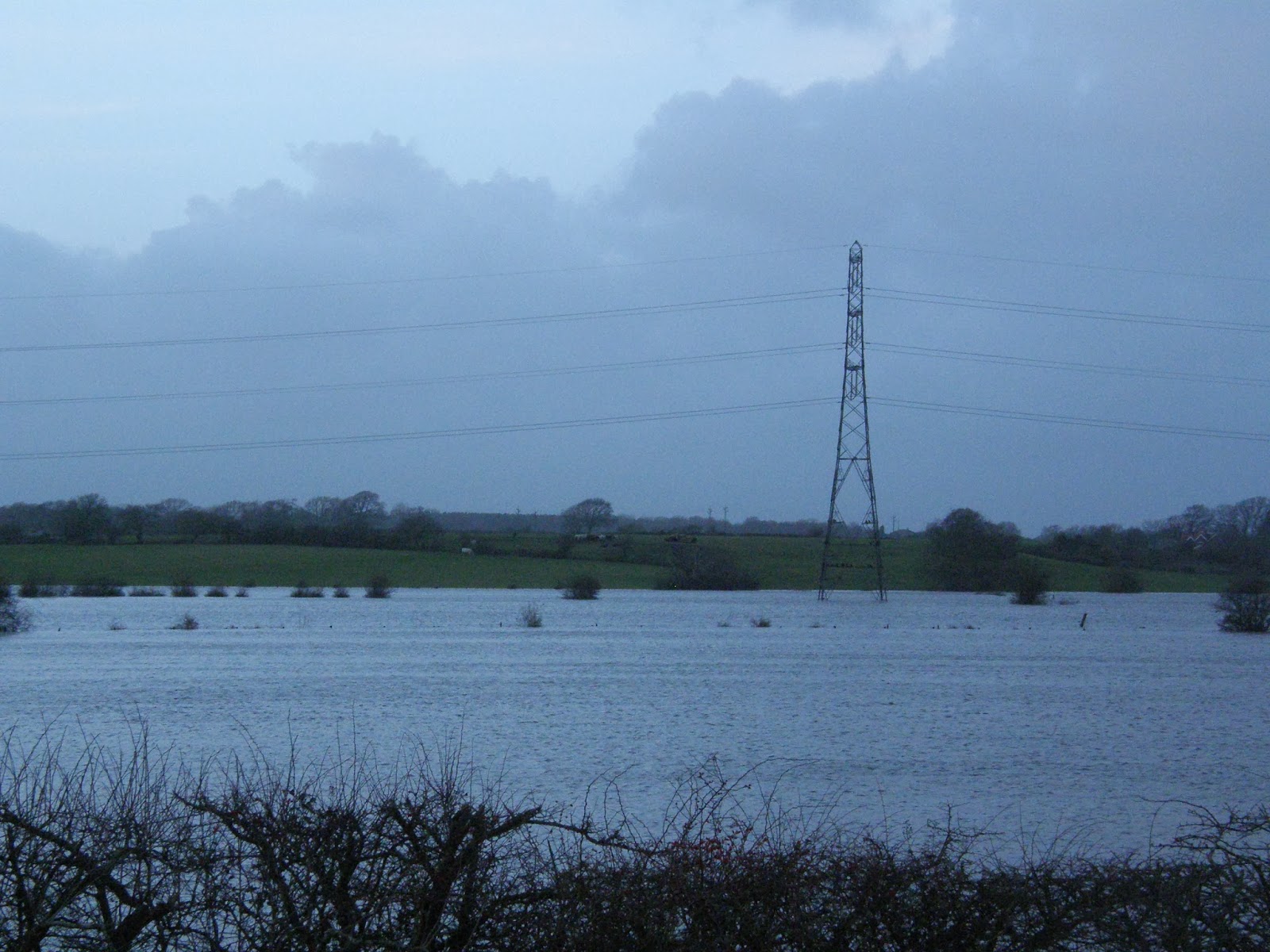 |
| This is not a lake! |
From the Black Sewer outfall to Wyckham Dale Farm and beyond was one continuous sheet of water, broken only by the high hedges. It probably extended as far as Stretham Manor, although I did not walk up as far as that. It was windy, so the Cormorants were not roosting at the top of the electricity pylons, but they could not roost on the higher patches of ground as they usually do either because all was underwater, so they were occupying the lower rungs of the pylons. There were about 60 of them. These fields flood most winters, but I have never seen it like this. The water in places was up to within a foot of the tops of the gate posts. On the east side of the river there was no flooding and the suckler herd of Sussex Red cattle were grazing in the fields and so was a flock of about 100 Greylag geese. It was late afternoon and flocks of gulls were heading south towards the sea and large flocks of starlings were heading southeast, presumably to roost (were they heading for the Brighton piers?) I saw five flocks of up to 200 birds in each and several smaller ones, so about 1000 birds.
While I was watching the Greylag flock, a Kestrel which had been hovering nearby, flew past and landed on a fence post a few yards away and remained there for a couple of minutes. It is not often that a Kestrel behaves in this confiding way and this is the second time I have had an encounter of this sort along the riverbank. Perhaps this bird has become used to people using this path and has lost its reserve. However it had been hunting over the riverbank, which got me thinking about the field voles that inhabit the now flooded fields. Have some of them migrated to the riverbank to avoid drowning creating a feeding opportunity for the Kestrel too good to allow it to be interrupted by a human, or was the Kestrel facing a food shortage because the field voles had drowned and its usual hunting grounds were under water?


No comments:
Post a Comment